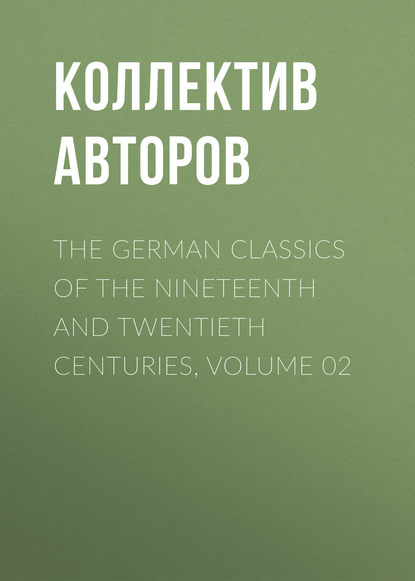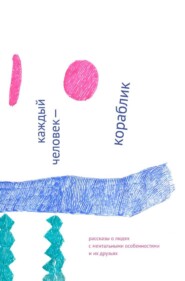По всем вопросам обращайтесь на: info@litportal.ru
(©) 2003-2025.
✖
The German Classics of the Nineteenth and Twentieth Centuries, Volume 02
Настройки чтения
Размер шрифта
Высота строк
Поля
All this time he had not once turned toward the queen, but had given his whole attention to what he was doing. At last he inclined his head before her, and signified that he believed he had now fulfilled her commands. She held the urn out to him, expressing her desire to see it represented on the top of the monument. He complied, although unwillingly, as it would not suit the character of the rest of his design. Luciana was now at last released from her impatience. Her intention had been by no means to get a scientific drawing out of him. If he had only made a few strokes, sketched out something which should have looked like a monument, and devoted the rest of his time to her, it would have been far more what she had wished, and would have pleased her a great deal better. His manner of proceeding had thrown her into the greatest embarrassment. For although in her sorrow, in her directions, in her gestures, in her approbation of the work as it slowly rose before her, she had tried to manage some sort of change of expression, and although she had hung about close to him, only to place herself into some sort of relation to him, yet he had kept himself throughout too stiff, so that too often she had been driven to take refuge with her urn; she had to press it to her heart and look up to heaven, and at last, a situation of that kind having a necessary tendency to intensify, she made herself more like a widow of Ephesus than a Queen of Caria. The representation had to lengthen itself out and became tedious. The pianoforte player, who had usually patience enough, did not know into what tune he could escape. He thanked God when he saw the urn standing on the pyramid, and fell involuntarily as the queen was going to express her gratitude, into a merry air; by which the whole thing lost its character, the company, however, being thoroughly cheered up by it, who forthwith divided, some going up to express their delight and admiration of the lady for her excellent performance, and some praising the Architect for his most artistlike and beautiful drawing.
The bridegroom especially paid marked attention to the Architect. "I am vexed," he said, "that the drawing should be so perishable; you will permit me, however, to have it taken to my room, where I should much like to talk to you about it."
"If it would give you any pleasure," said the Architect, "I can lay before you a number of highly finished designs for buildings and monuments of this kind, of which this is but a mere hasty sketch."
Ottilie was standing at no great distance, and went up to them. "Do not forget," she said to the Architect, "to take an opportunity of letting the Baron see your collection. He is a friend of art and of antiquity. I should like you to become better acquainted."
Luciana was passing at the moment. "What are they speaking of?" she asked.
"Of a collection of works of art," replied the Baron, "which this gentleman possesses, and which he is good enough to say that he will show us."
"Oh, let him bring them immediately," cried Luciana. "You will bring them, will you not?" she added, in a soft and sweet tone, taking both his hands in hers.
"The present is scarcely a fitting time," the Architect answered.
"What!" Luciana cried, in a tone of authority; "you will not obey the command of your queen!" and then she begged him again with some piece of absurdity.
"Do not be obstinate," said Ottilie, in a scarcely audible voice.
The Architect left them with a bow, which said neither yes nor no.
He was hardly gone, when Luciana was flying up and down the saloon with a greyhound. "Alas!" she exclaimed, as she ran accidentally against her mother, "am I not an unfortunate creature? I have not brought my monkey with me. They told me I had better not; but I am sure it was nothing but the laziness of my people, and it is such a delight to me. But I will have it brought after me; somebody shall go and fetch it. If I could only see a picture of the dear creature, it would be a comfort to me; I certainly will have his picture taken, and it shall never be out of my sight."
"Perhaps I can comfort you," replied Charlotte. "There is a whole volume full of the most wonderful ape faces in the library, which you can have fetched if you like."
Luciana shrieked for joy. The great folio was produced instantly. The sight of these hideous creatures, so like to men, and with the resemblance even more caricatured by the artist, gave Luciana the greatest delight. Her amusement with each of the animals, was to find some one of her acquaintance whom it resembled. "Is that not like my uncle?" she remorselessly exclaimed; "and here, look, here is my milliner M., and here is Parson S., and here the image of that creature—bodily! After all, these monkeys are the real incroyables, and it is inconceivable why they are not admitted into the best society."
It was in the best society that she said this, and yet no one took it ill of her. People had become accustomed to allow her so many liberties in her prettinesses, that at last they came to allow them in what was unpretty.
During this time, Ottilie was talking to the bridegroom; she was looking anxiously for the return of the Architect, whose serious and tasteful collection was to deliver the party from the apes; and in the expectation of it, she had made it the subject of her conversation with the Baron, and directed his attention on various things which he was to see. But the Architect stayed away, and when at last he made his appearance, he lost himself in the crowd, without having brought anything with him, and without seeming as if he had been asked for anything.
For a moment Ottilie became—what shall we call it?—annoyed, put out, perplexed. She had been saying so much about him—she had promised the bridegroom an hour of enjoyment after his own heart; and with all the depth of his love for Luciana, he was evidently suffering from her present behavior.
The monkeys had to give place to a collation. Round games followed, and then more dancing; at last, a general uneasy vacancy, with fruitless attempts at resuscitating exhausted amusements, which lasted this time, as indeed they usually did, far beyond midnight. It had already become a habit with Luciana to be never able to get out of bed in the morning or into it at night.
About this time, the incidents noticed in Ottilie's diary become more rare, while we find a larger number of maxims and sentences drawn from life and relating to life. It is not conceivable that the larger proportion of these could have arisen from her own reflection, and most likely some one had shown her varieties of them, and she had written out what took her fancy. Many, however, with an internal bearing, can be easily recognized by the red thread.
FROM OTTILIE'S DIARY
"We like to look into the future, because the undetermined in it, which may be affected this or that way, we feel as if we could guide by our silent wishes in our own favor."
"We seldom find ourselves in a large party without thinking; the accident which brings so many here together, should bring our friends to us as well."
"Let us live in as small a circle as we will, we are either debtors or creditors before we have had time to look round."
"If we meet a person who is under an obligation to us, we remember it immediately. But how often may we meet people to whom we are, ourselves, under obligation, without its even occurring to us!"
"It is nature to communicate one's-self; it is culture to receive what is communicated as it is given."
"No one would talk much in society, if he only knew how often he misunderstands others."
"One alters so much what one has heard from others in repeating it, only because one has not understood it."
"Whoever indulges long in monologue in the presence of others, without flattering his listeners, provokes ill-will."
"Every word a man utters provokes the opposite opinion."
"Argument and flattery are but poor elements out of which to form a conversation."
"The pleasantest society is when the members of it have an easy and natural respect for one another."
"There is nothing in which people more betray their character than in what they find to laugh at."
"The ridiculous arises out of a moral contrast, in which two things are brought together before the mind in an innocent way."
"The foolish man often laughs where there is nothing to laugh at.
Whatever touches him, his inner nature comes to the surface."
"The man of understanding finds almost everything ridiculous; the man of thought scarcely anything."
"Some one found fault with an elderly man for continuing to pay attention to young ladies. 'It is the only means,' he replied, 'of keeping one's-self young, and everybody likes to do that.'"
"People will allow their faults to be shown them; they will let themselves be punished for them; they will patiently endure many things because of them; they only become impatient when they have to lay them aside."
"Certain defects are necessary for the existence of individuality. We should not be pleased, if old friends were to lay aside certain peculiarities."
"There is a saying, 'He will die soon,' when a man acts unlike himself."
"What kind of defects may we bear with and even cultivate in ourselves?
Such as rather give pleasure to others than injure them."
"The passions are defects or excellencies only in excess."
"Our passions are true phoenixes: as the old burn out, the new straight rise up out of the ashes."
"Violent passions are incurable diseases; the means which will cure them are what first make them thoroughly dangerous."
"Passion is both raised and softened by confession. In nothing, perhaps, were the middle way more desirable than in knowing what to say and what not to say to those we love."
CHAPTER V
So swept on Luciana in the social whirlpool, driving the rush of life along before her. Her court multiplied daily, partly because her impetuosity roused and attracted so many, partly because she knew how to attach the rest to her by kindness and attention. Generous she was in the highest degree; her aunt's affection for her, and her bridegroom's love, had heaped her with beautiful and costly presents, but she seemed as if nothing which she had was her own, and as if she did not know the value of the things which had streamed in upon her. One day she saw a young lady looking rather poorly dressed by the side of the rest of the party, and she did not hesitate a moment to take off a rich shawl which she was wearing and hang it over her—doing it, at the same time, in such a humorous, graceful way that no one could refuse such a present so given. One of her courtiers always carried about a purse, with orders, whatever place they passed through, to inquire there for the most aged and most helpless persons, and give them relief, at least for the moment. In this way she gained for herself all round the country a reputation for charitableness which caused her not a little inconvenience, attracting about her far too many troublesome sufferers.
Nothing, however, so much added to her popularity as her steady and consistent kindness toward an unhappy young man, who shrank from society because, while otherwise handsome and well-formed, he had lost his right hand, although with high honor, in action. This mutilation weighed so heavily upon his spirits, it was so annoying to him, that every new acquaintance he made had to be told the story of his misfortune, that he chose rather to shut himself up altogether, devoting himself to reading and other studious pursuits, and once for all would have nothing more to do with society.
She heard of the state of this young man. At once she contrived to prevail upon him to come to her, first to small parties, then to greater, and then out into the world with her. She showed more attention to him than to any other person; particularly she endeavored, by the services which she pressed upon him, to make him sensible of what he had lost in laboring herself to supply it. At dinner, she would make him sit next to her; she cut up his food for him, that he might have to use only his fork. If people older or of higher rank prevented her from being close to him, she would stretch her attention across the entire table, and the servants were hurried off to make up to him what distance threatened to deprive him of. At last she encouraged him to write with his left hand. All his attempts he was to address to her and thus, whether far or near, she always kept herself in correspondence with him. The young man did not know what had happened to him, and from that moment a new life opened out before him.

















